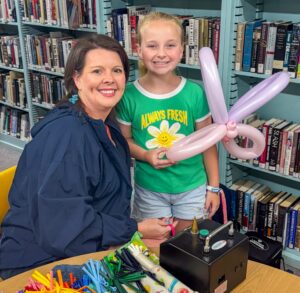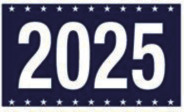Barbour's strategy brilliant
By By Buddy Bynum / editor
Nov. 9, 2003
Gov.-elect Haley Barbour launched his campaign for Mississippi's top elected office with four simple words that undergirded a brilliant political strategy.
The words "We can do better" delivered a very clear, simple and distinct message that political scientists and wannabee consultants would do well to incorporate into their lesson plans. Let's look at the words.
Responsive chord
The slogan "We can do better" struck a responsive chord and the majority of voters evidently got the message, believed it and went to their polling places armed with the desire for a change in management at the top of state government.
That Barbour, once President Reagan's chief political adviser and former chairman of the Republican National Committee, would devise a strategy that worked is not surprising. It was on his watch that Republicans became the majority party in both houses of Congress. Over the years, his advice has helped other candidates win statehouses, too.
Barbour is an accomplished political strategist whose counsel is sought at the highest levels of the federal government. He is respected, and has been compensated well over the years for the relationships and contacts he's built up as a lobbyist.
After all, if you're going to be a Washington lobbyist, why not be the best?
Barbour, a Yazoo City native who commuted back and forth from his Washington jobs for years, employed a strategy that overcame shrill attempts by the defeated incumbent to paint him as some outsider trying to "poison our kids" and help "Mexico steal Mississippi jobs." Like defeated Democrat Barbara Blackmon's bizarre "abortion affidavit," Ronnie Musgrove's attack and smear tactics ultimately hurt only himself.
Musgrove's attack strategy played right into Barbour's hands; the incumbent was too negative for too long.
Embracing the positives
Voters may have heard Barbour described as a "Washington lobbyist" so often that they actually embraced the positives of someone who has such a good relationship with powerful people in the federal government. After all, more than a third of Mississippians live on some sort of federal transfer payments.
When Musgrove attacked, Barbour aggressively defended. Barbour took the high ground early and never gave it up, much as he took an early lead as returns came in on election night and never trailed. When Barbour attacked, Musgrove bobbed and weaved, played loose with the facts particularly over job losses and whined away at his preordained "Washington lobbyist" line.
Unlike 1999 when Musgrove got more votes than former Republican congressman Mike Parker but was actually elected governor by the state House of Representatives, the scorched earth strategy didn't work this time.
Obviously, many forces were at work for Barbour. For example, Republicans have fine-tuned a get-out-the-vote program, utilizing extensive phone banks with pre-recorded messages from people like President Bush and singer Pat Boone, and a lot of direct mail. Barbour wrote the book on getting out his vote.
Marsha Barbour, the candidate's wife, was a tremendous asset to the campaign and will be a great first lady for the state. Her personal letters to voters were very appealing.
The members of many pro-business groups worked hard for Barbour, including the Mississippi Manufacturers Association which had never endorsed a candidate for governor. And, of course, Barbour's friendship with President Bush and their proficiency for fund-raising resulted in the most contributions ever earned by a political campaign in Mississippi.
The campaign, surely a textbook example of how to do things right in a tough political climate, ended on election night with Barbour ousting the incumbent governor. But it started with four simple words.








